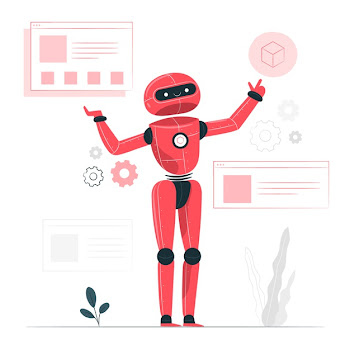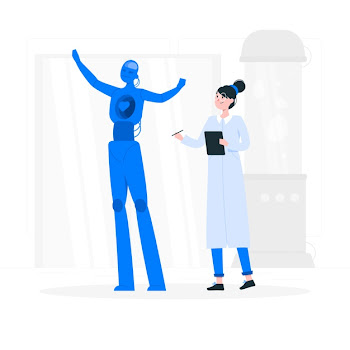

Development of Artificial Intelligence (AI)
Artificial Intelligence is among the most revolutionary innovations that people have come across in today’s society. AI is relatively a new phenomenon that has become a phenomenon gone through a revolutionary changes of some few decades starting from its theoretical perception to actual existence in the society.
Early Stages of AI
The idea of artificial intelligence can be attributed to even primitive myths/ philosophies in which man conjured up creating a machine that could think. Nonetheless, it was in the middle of the twentieth century that AI appeared as a science; the major contributors were Initializes Turing. In 1950, Turing introduced perhaps the most known test, the **Turing Test** that indicated a machine’s capacity for sort of intelligence. From his work, added to the such innovations as mathematics and computing, emerged AI as an academic field.
The term ‘Artificial Intelligence’ was first used in 1956 in the Dartmouth College and hence the Dartmouth Conference is regarded as the official beginning of AI. The attendees of the conference, John McCarthy and Marvin Minsky and others were hopeful of the future when the machines would be intelligent as human beings. In these early years AI research mainly covered aspects of symbolic reasoning, problem solving and what could be called forerunners of today’s machine learning but due to inherent limitations of computers of that era, the pace of development was slow.
Growth Through Machine Learning
The second big jump in AI was made in the 1980s and 1990s when AI concept of machine learning was discovered. Rather than having programmers directly encode rules to the AI systems, this new approach meant that the systems learned autonomously from the data thus creating opportunities to enhance the system’s performance. Artificial neural networks as a popular model of the given era are based on the brain. However, early neural networks were very primitive compared to the present day neural nets many researchers gave up on this approach due to constraints in the available computing power.
The revival of the AI in the 21st century has mainly being attributed to the advent of hardware such as GPUs and due to the internet and digital data that provides large data sets. This period also saw the development of deep learning which is a subfield of machine learning that enhances deep neural networks with multiple layers of neuron. Google with the help from DeepMind, Facebook AI Research, and OpenAI started to make big progresses in image recognition as well as NLP as well as reinforcement learning. CNNs for example brought a drastic change to the field of computer vision and RNNs and transformers were revolutionary to language models.
AI in Real-World Applications
Artificial intelligence can be observed as an inseparable part of the modern world as it is utilized in various aspects of people’s life. Siri, Alexa, and Google Assistant are few examples of AI personal assistants that is capable of understanding natural language. Recommendations of Netflix and YouTube videos and autonomous vehicles driving on roads and highways are all powered by AI technologies.

Applications of AI span across health, finance and more that includes use in diagnostics of health, enhancing supply chain, detecting frauds, and even creativity like generating art, writing music. In the field of healthcare, there are AI models which are trained to identify cancers in the medical images with an accuracy greater than the doctors. AI is also helping out in the drug discovery process since researchers can now find possible drug targets more easily.
AI as an Ethical Dilemma and Future Directions
Modern technologies are opening up fields that are still closely linked with great ethical and social issues. Such matter as job losses, privacy, and prejudice in AI can hardly be considered as sociopolitical topics for discussion. Another risk connected with the usage of AI if it is not contained properly is seen in the form of autonomous weapon and deep fakes.
The more and more that we move forward into the future, the more prominent and elaborate the use of AI is. Scientists are developing Artificial General Intelligence (AGI) which can achieve any cognitive task that a human being can accomplish. Current AI systems are capable in performing specific tasks (narrow AI), while AGI is considered as the next major goal of AI research as it is the attempt to build the general AI that is able to reason in a broader sense and in different contexts.It is for this reason that more and more people argue that AI will continue to grow as a force in the society. It was recognised that coordination of effort between researchers, policymakers and industry will be critical in ensuring that AI becomes a force for good, and is done so in an ethical manner.
Conclusion
The advancement of AI has been quite an interesting journey from dreaming about it with concepts to having it to implement. With the advancement of the technology, it is expected that the future would be highly influenced by AI especially in enhancement of industry and changes of human interaction. However, there are a lot of opportunities that can be held through the help of AI, a great number of opportunities that can bring a brilliant future with intelligent solutions of some of the greatest problems our world can face.

